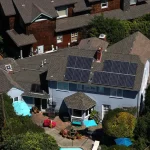“We have had to increase the allocation for storage due to the number of projects submitted: 1,750 applications.”
Among the 143 projects selected, 81 were for hybrid energy storage projects, 42 for standalone battery energy storage systems (BESS), 17 for thermal energy storage (TES) and three for pumped hydro energy storage (PHES).
“In total, the shortlisted projects would provide us with 2.4GW of additional power and 8.9GWh of storage capacity,” added Aagesen.
Projects will now have 36 months to be operational from the moment of the final grant aid was received or until the end of 2029. The southern region of Andalusia ended up being awarded the most projects with 39, followed by Catalonia with 17 and the Valencian Community with 14.
It follows the award of 880MW/1,809MWh of projects in the country’s ‘strategic projects for the economic recovery and transition’ (PERTE in Spanish) programme in late 2023.
Spain passes decree for grid resilience and stability
In related news, the Spanish government has approved a royal decree aimed at strengthening the power grid’s resilience, robustness and stability in response to the nationwide blackout in April.
Some of the measures passed in this latest royal decree were picked up from the previous one in June, which was ultimately rejected by the Congress of Deputies in July. The previous royal decree was in response to the Iberian blackout that happened on 28 April 2025.
One of the measures taken from the previous royal decree is to make it easier for energy storage to be added to the grid, as Spain aims to have 22.5GW of installed energy storage by 2030.
This will give priority to the hybridisation of energy storage with other operational renewable energy plants, a measure that was welcomed by the Spanish trade association Spanish Photovoltaic Union (UNEF).
Red Eléctrica, the Spanish transmission system operator (TSO), will prepare proposals for regulatory modifications such as responses to power oscillations, which were highlighted as one of the three causes of the April Iberian blackout. Other proposals for regulatory modifications include the speed of voltage variation and scheduling of technical restrictions.
Part of this article originally appeared on our sister site PV Tech.









